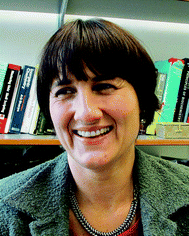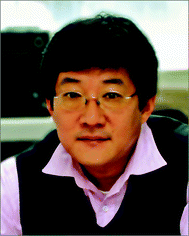Building on success: Analyst for the future
Analyst is the leading analytical journal within the Royal Society of Chemistry's portfolio of journals publishing the best contemporary papers across a broad range of analytical science. It is the oldest journal in the portfolio of 45 journals published by the Royal Society of Chemistry and we are positioned as a home for a wide range of fundamental and applied analytical research, welcoming both Communications and Full Papers as well as Tutorial, Critical and Mini Reviews.In recent months the journal has taken a strategic decision to increase the expectations in terms of the quality of research published and we realise that there may have been a change in perception of the journal within the community. This Editorial seeks to address that perception and the reasons behind why there has been a change in the basic working of the journal.
To achieve our aim to publish only the highest quality analytical research, the journal is moving towards a 100% Associate Editor model with subject-specific experts initially assessing papers and then steering them through the peer-review process. To increase our Board expertise, we recently welcomed on board Ryan Bailey, University of Michigan, USA (Fig. 1), Perdita Barran, University of Manchester, UK (Reviews Editor) (Fig. 2) and Jaebum Choo, Hanyang University, South Korea (Fig. 3). Our previous Reviews Editor, Jean-Francois Masson, will continue on the Editorial Board as an Associate Editor for original research papers. The full list of Associate Editors and their expertise can be found on our website at http://rsc.li/analyst-editorial-board.
Following feedback from the community, we feel that this will give a much higher degree of confidence in our peer review as well as success in promoting high-quality analytical chemistry research. As a result of increased standards, the number of papers published within Analyst has dropped due to this new expectation of higher quality and less routine work, which is in part to be expected as we transition from a journal that published a very high number of papers to a journal which has a greater emphasis on new insights, applications and step changes within analytical chemistry research. We are constantly attracting new authors but we also value our existing and previous contributors as we go through this transition. Analyst has built up a strong community of loyal authors and reviewers and we aim to support this community by providing a stronger journal presence and visibility as a home for high-quality research. Ultimately, we aim to have an impact factor for the journal that rivals our peers at the top of the analytical chemistry discipline, which takes time, patience and continued faith and support from our authors and reviewers.
We are constantly looking at our coverage of analytical chemistry, our contributions, the impact of the science that has been published and also the composition of our Editorial and Advisory Boards. We have excellent representation from world-leading researchers in the field of analytical chemistry on our Boards which is a clear indication of their support for the journal and what we are trying to achieve. We hope that this change in expectation for papers within the journal can be understood by the research community and that we can all work together to produce a world-leading home for the publication of high-quality analytical chemistry research. As authors we hope that you will continue to submit your best work and as reviewers, you can influence what papers make it to publication and ensure that the good papers we receive are made even better.
Additionally, Analyst continues to support the broader analytical community; nominations are open once again for our Emerging Investigator Lectureship and we played a significant part in the highly successful 2017 Twitter poster conference with 1523 contributors across the RSC and reached a total audience of 2.61 million with 5556 tweets (1051 of which from the Analytical content). Look out for the next Twitter poster conference, which is scheduled to take place on March 6th 2018.
Our commitment to supporting emerging researchers is also evidenced by our strong support for http://springscix.org/ to be held in Glasgow, April 2018 which focuses on emerging researcher participation, as well as our continued support of various meetings such as including the main SciX meeting held in the Autumn each year.
We thank you for your continued support and interest in the journal and look forward to the next exciting phase of development and growth!
Duncan Graham
Analyst Editor in Chief
| This journal is © The Royal Society of Chemistry 2018 |



